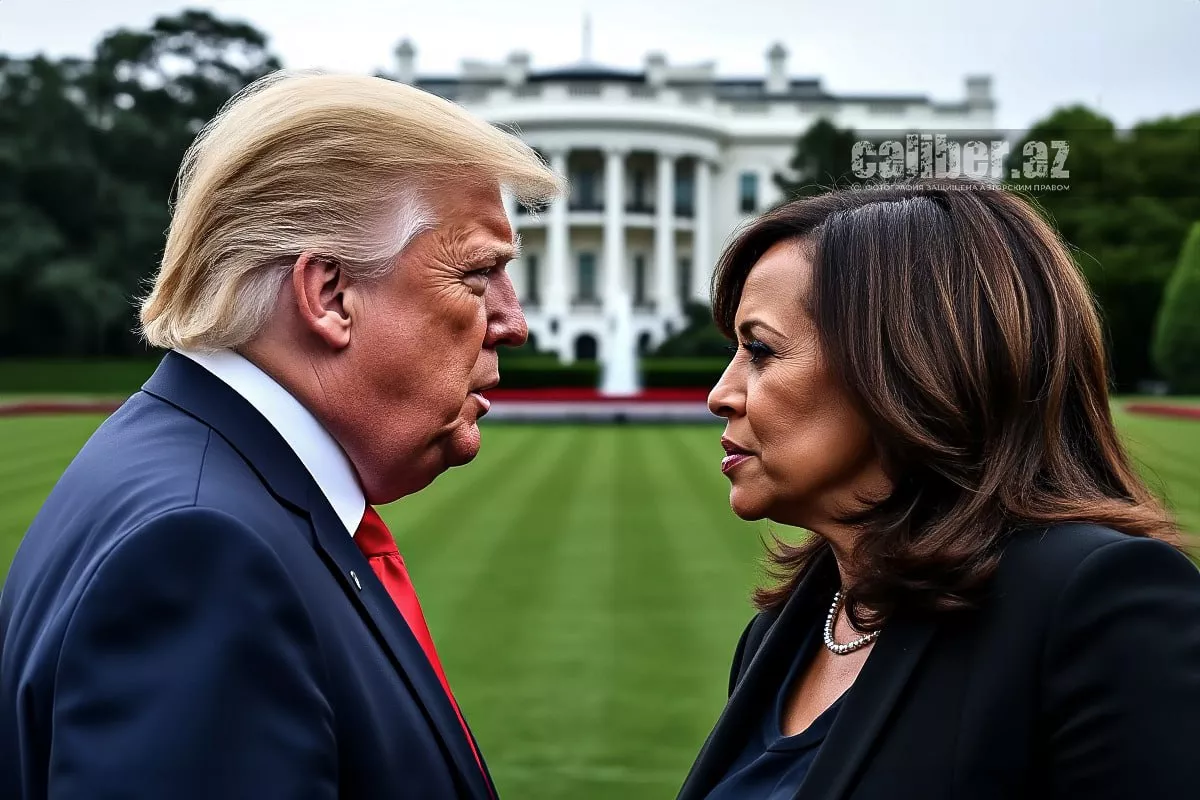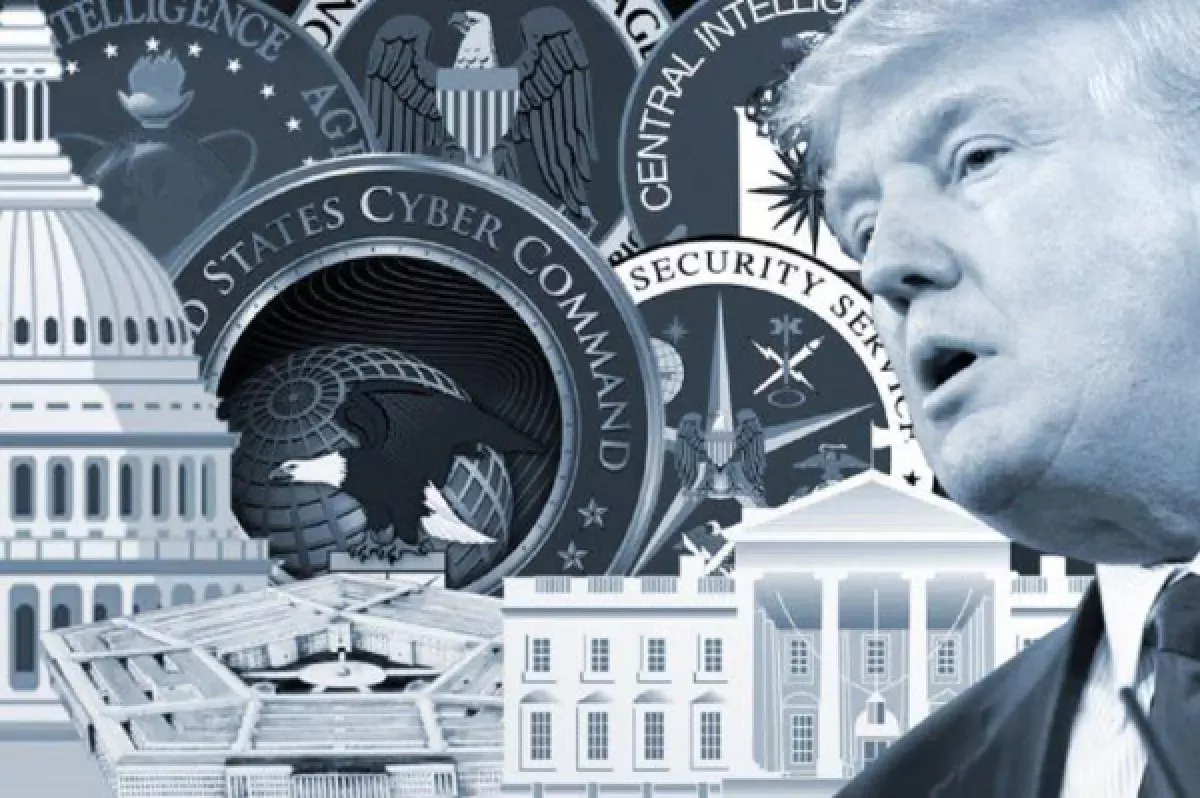Where to look for the "Deep State"? Trump’s “crusade” against bureaucracy
More and more often, we hear about the so-called "Deep State." This phrase gained particular traction in the run-up to and during the second presidential term of Donald Trump. Yes, he also mentioned it during his first term, but at that time, his focus encountered much greater resistance from politicians who repeatedly argued that it was nothing more than opposition to Trump, who represented industrial capital, versus the leaders of banking capital.
Today, Trump hears significantly fewer rebuttals on this matter than before. Nor were there many during the election campaign, when Trump loudly declared that, should he win, he and his team would "destroy the Deep State" by striking at the civil service and reducing the powers of various institutions. On March 16, 2023, he further specified the need for a "complete commitment to dismantling the entire globalist, neocon establishment," which perpetually drags "us into endless wars, pretending to fight for freedom and democracy abroad, while they turn us into a third-world country and a third-world dictatorship right here at home."
As he emphasised, the State Department, the defence bureaucracy, the intelligence services, and everything else “need to be completely overhauled and reconstituted to fire the Deep Staters and put America First.” The reason for these steps, Trump said, was the globalists' plans “to squander all of America's strength, blood and treasure, chasing monsters and phantoms overseas while keeping us distracted from the havoc they're creating here at home.” Thus, "these forces are doing more damage to America than Russia and China could ever have dreamed." For this reason, " evicting the sick and corrupt establishment" became a monumental task, and "I'm the only one who can do it. I'm the only one that can get the job done."
In this context, it is noted, for example, that on Truth Social, from January 1, 2023, to April 1, 2024, Trump posted messages about crushing the "Deep State" 56 times, including his alleged steps in this direction. Essentially, he continues to follow this line today, but now from a more practical perspective. However, many analysts have more openly suggested that, perhaps, by "Deep State," Trump was primarily referring to supporters of the Democratic Party who held key positions in the U.S. political hierarchy.

In this regard, according to Citizens for Responsibility and Ethics in Washington (CREW), which, as a reminder, filed a lawsuit in 2017 in a federal court in New York against Trump during his first presidential term, accusing him of violating provisions of the U.S. Constitution that prohibit individuals in government positions from receiving rewards and payments from foreign governments, the "Deep State" refers to "an alleged shadowy group of powerful bureaucrats and officials who, according to many, wield undue influence over government policies, regardless of the elected administration." In fact, according to CREW, the "Deep State employees" that Trump refers to are "the thousands of nonpolitical civil servants and issue area experts working to provide government services from weather forecasts to mail delivery." Trump, however, calls the "Deep State" the main force that prevented him from achieving everything he wanted during his first term, sabotaging him and undermining his authority.
In general, Trump's "crusade" against the civil service began during his first term, when, in the last three months of his presidency, he issued an executive order simplifying the process of firing government experts and civil servants, replacing them with "loyalists." As noted in this regard, the plan, which came to be known as Schedule F, "was never fully implemented because President Biden rescinded Trump’s executive order when he took office."
In any case, as can be seen from the above, no clear definition of the term "Deep State" is provided. However, some experts in this field often refer to the approach of American sociologist Charles Wright Mills, who expressed his view as early as 1956 in his book The Power Elite. In it, he argued that with the centralisation of media and political power, certain individuals reached a position in American society that allowed them to view ordinary people from above, so to speak, and wield powerful influence over their everyday lives through their decisions. This kind of "ruling elite" consists of individuals holding positions that give them the ability to rise above the ordinary people and make decisions with the greatest consequences. Behind such individuals lies a triad formed by hierarchical institutions: the state, corporations, and the military. These branches constitute tools of power, and at the top of these hierarchies are the command centers of modern society, namely, military elites, corporate leaders, and official government leaders, who, united together, form the ruling elite of the United States.
In the context of Mills' emphasis, a number of analysts express the belief that the "ruling elite" he identified does not become akin to the individuals and organisations that make up Trump's "Deep State." However, the latter cannot be equated with the so-called "Group of 300," as conspiracy theorists often refer to the cohort of individuals who are "above the world" and invisibly, through their local proxies (including the very "ruling elite"), control all planetary processes.

However, as many experts exclaim, someone in the world, after all, must, so to speak, "bring the day to a close" on a global scale. Just as banks have always had (and still have) a "day's end," similarly, in all self-respecting companies, isn't there a specific person (or group of individuals) responsible for tallying the inflows and outflows for the day, month, year, etc., all around the world? The question, of course, is rhetorical, and the answer can be found in the works of the brilliant American author Mario Puzo, who masterfully described the inner workings of the financial, economic, and political paradigms of modern times. In his sadly under-read novel The Fourth Kennedy, a scene features such a moment: The computer screens displayed a vast world map, showing all the countless oil tankers, the ports from which they departed, and their destinations, with the names of their owners, how much they were bought for, and their tonnage.
So, does this mean that the "Deep State" actually exists? It thrives, initiating wars and ending them; provoking conflicts and resolving them; rebuilding destroyed infrastructure and subjecting it to catastrophes again? And so on, in a cycle? Thus, is this "Deep State" even above the "Deep State" that Trump is currently dismantling?
At this stage, it is mostly Trump's version of the "Deep State" that is in circulation. The nuance here, however, is that leaders of several countries have also begun to apply this phrase in relation to the problems emerging in their own nations. We, for our part, have only tried to slightly touch upon the depth of the composition, if one can put it that way, of this state within a state. All that remains is to continue closely monitoring the steps of the 47th President of the United States to see firsthand how he will continue to dismantle the mechanisms of the toolset he has dubbed the "Deep State."








